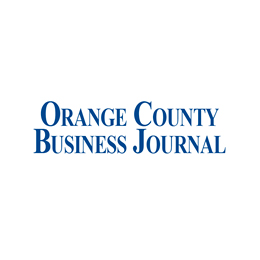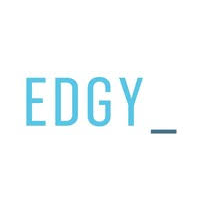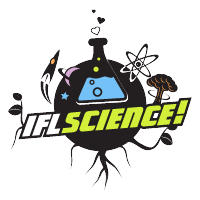Media Watch
UCI Leads $10 Million Personal Data Privacy Center
Orange County Business Journal -
The University of California-Irvine will lead a $10 million research center aimed at protecting personal data privacy. … “It is an honor and responsibility to lead one of NSF's signature projects to address the timely and important problem of personal data protection on the internet,” said principal investigator Athina Markopoulou, professor and chairperson of the Department of Electrical Engineering & Computer Science at UCI. [Subscription required, you can request an electronic copy of the article by sending an email to communications@uci.edu.] Read More
Opinion: Making public transport safe during COVID-19
The Hindu -
R. Jayakrishnan , UCI engineering professor and others write, “The metro rail agencies’ focus may need to shift to the egressing passengers, as it is important to prevent them from transferring what is on their hands to their faces after egress. We should expect a lot of passengers to leave in a hurry and to not bother with cleaning their hands, even if hand sanitiser dispensers are available.” Read More
Campus Police Are Under Scrutiny for Racial Profiling. It Isn’t the First Time
Diverse Issues in Higher Education -
In February, an officer at the University of California Irvine (UCI) arrested Shikera Chamndany, a Black alumna, for entering a campus building on lockdown and allegedly assaulting a police officer. Unaffiliated with the student protest that led officers to close the building, she was there to pick up her transcripts. … But universities, including UCI, are using this national moment to reform campus policing. A university statement on June 9 announced new steps “to further align the UCI Police Department with our commitment to inclusive excellence and confronting anti-Black racism,” signed by Dr. Douglas Haynes, chief diversity officer and vice chancellor for equity, diversity and inclusion, UCI chief of police Elizabeth Griffin and Ronald S. Cortez, CFO and vice chancellor of the division of finance and administration. Read More
UCI Surgeon, Diehard Ducks Fan Making a Difference During Pandemic
Anaheim Ducks -
"It was a weird thing to leave in the first week of March when everything was fine, and then come home to find out everything was closed," says Dr. Nelson, Medical Director of UCI Beckman Laser Institute and Medical Clinic and professor of surgery and biomedical engineering. "That was a shock." Dr. Nelson is engaged in full-time clinical practice at UCI Beckman Laser Institute and Medical Clinic on the campus on UC Irvine, serving patients with pediatric port wine stain birthmarks, hemangiomas and other vascular malformations and skin disorders. But like many businesses in the state, his clinic was temporarily closed. Read More
Invisibility is (almost) possible when human cells are merged with squid genes
SYFY Wire -
Humans have not been able to make themselves seem invisible yet, but our species just got closer — at least in a petri dish. Scientists at UC Irvine have succeeded at genetically engineering human cells to express the light-scattering properties that camouflage squid (like the giant squid above), cuttlefish and octopi so well that predators mistake them for rocks or seaweed. When proteins called reflectins were taken from a squid and introduced to embryonic human kidney cells, the cells were able to blend into their backgrounds in the same surreal way a squid can. Read More
Scientists Mixed Squid DNA With Human Cells to Control Their Transparency in 'Revolutionary' Study
Newsweek -
Scientists have changed the degree of transparency of human cells in a laboratory, according to a study. It is hoped the technique, inspired by see-through sea creatures, will help us gain a deeper understanding of our biological processes. … To conduct the study, Alon Gorodetsky of the Department of Chemical and Biomolecular Engineering at the University of California, Irvine, and colleagues genetically engineered human cells—which are relatively transparent—to express reflectin. Read More
Scientists Give Human Cells Squid-Like Active Camouflage
Edgy -
However, the researchers at the University of California, Irvine, weren’t looking to transfer this superpower into just any material. Instead, they wanted to figure out how to make the human cell invisible — and they did. In a statement about the study, lead author and UCI doctoral student in chemical and biomolecular engineering, Atrouli Chatterjee said: “Our project – which is decidedly in the realm of science – centers on designing and engineering cellular systems and tissues with controllable properties for transmitting, reflecting, and absorbing light.” Read More
Coming soon: the invisible man
ACS -
A team of scientists from the University of California, Irvine, published a paper in Nature Communications last week detailing their success in engineering human cells to have the same ability to go transparent and reflect light, just as squids do. … But technology seen in The Invisible Man and across popular culture for decades is probably still a while back, with [UCI Associate Professor Alon] Gorodetsky saying there are still “many steps” before that is reached but it could be “possible very far down the line” after “numerous breakthroughs”. Read More
UC Irvine analysis finds renewable hydrogen sector could reach price parity with conventional fuel by mid- to late 2020s
Green Car Congress -
The California Energy Commission has released a UC Irvine roadmap for the buildout and deployment of renewable hydrogen production plants in California to support policy decisions and inform stakeholders. The study concludes that, with appropriate policy support, the renewable hydrogen sector can reach self-sustainability (price point at parity with conventional fuel on a fuel-economy adjusted basis) by the mid- to late-2020s. Read More
Genetically Engineered Human Cells Can Change Color Like A Scared Squid
IFL Science -
“For millennia, people have been fascinated by transparency and invisibility, which have inspired philosophical speculation, works of science fiction, and much academic research,” Atrouli Chatterjee, lead study author and doctoral student in chemical and biomolecular engineering at UCI, explained in a statement. “Our project – which is decidedly in the realm of science – centers on designing and engineering cellular systems and issues with controllable properties for transmitting, reflecting, and absorbing light.” Read More










